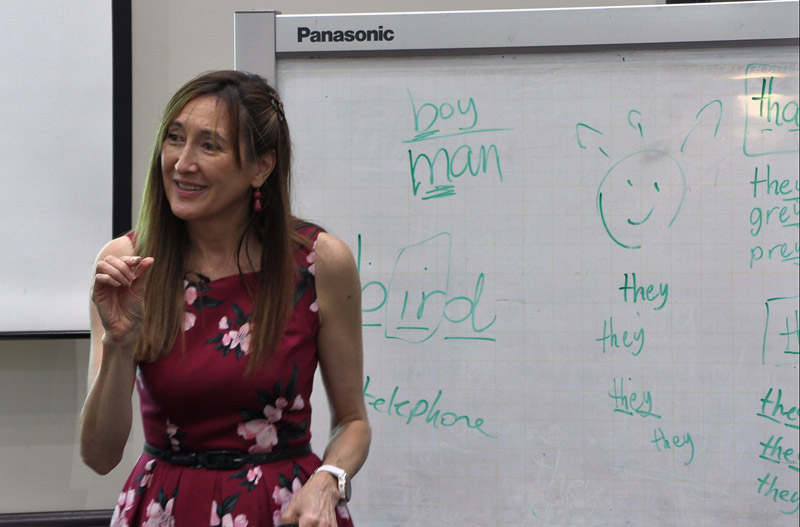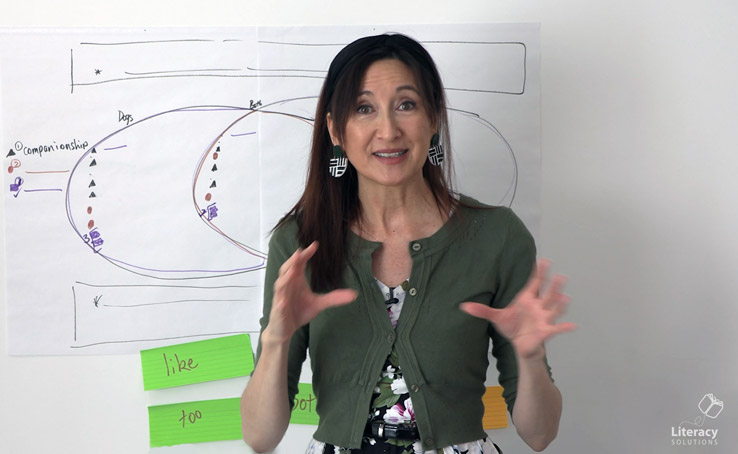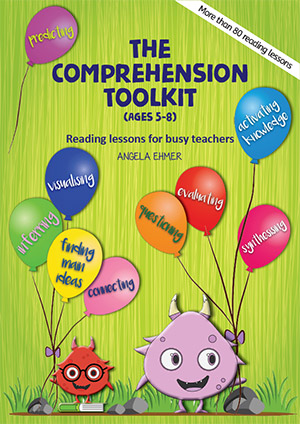Shared Reading
Shared Reading is a valuable approach for teaching reading skills, strategies and knowledge. Most classrooms feature shared reading lessons, but does this guarantee explicit teaching occurs. Many teaching resources support teachers to facilitate reading instruction, but effective practitioners shift between reading approaches most of the day, delivering explicit reading instruction across subject areas and incorporating a broad range of text types. Literacy instruction, where ever it occurs, is both explicit and integrated across the curriculum.
Let’s revisit some key features of shared reading . . .
- Purpose:
- to teach problem solving actions
- Audience:
- less experienced readers
- Text level:
- hard
Adult responsibilities:
- Reading to students
- Reading with students
- Facilitate reading by students.
The adult:
- leads the reading
- demonstrates how proficient reading sounds
- identifies a learning goal/s and highlights opportunities for the problem solving action to be applied within the text
- facilitates opportunities for students to apply or practise problem solving actions
- enhances understandings of the text, prompts for active engagement
Student responsibilities:
- Active participation in the reading of the text. Students listen to and observe the expert reader as she highlights how, when and why strategic actions are applied to problem solve the text or aspects of the text.
- They participate in applying problem solving actions as the expert scaffolds, builds or extends student knowledge of strategic problem solving as it relates to the text being read.
When selecting a reading approach, teachers consider a range of factors:
- What is my purpose? That is, what is it my students should learn from this (reading episode)?
- What level of support do I anticipate students need to acquire this knowledge? Should I model this lesson? Should I share this lesson? Should I guide this lesson?
- How will I make this learning goal clear to students? Is this text a suitable model for this learning goal?
- Have I made students acutely aware of what they should know, or be able to do by the end of the lesson?
- Have I provided the scaffolding students may need in order to apply the target skill/strategy/knowledge?
A frequent observation of shared reading lessons is of their overtness. The teaching/learning goal is made overt; it does not need to be inferred by students.
Shared Reading Online, launched in late 2013, the second of our online courses, examines the shared reading process in detail, and demonstrates how shared reading works in the classroom including a full lesson.
What do you do to improve the effectiveness of your shared reading lessons?
Tags: shared reading, teaching reading





Useful ideas for the middle school classroom.
Shared Reading is one of the fundamental components in the Literacy Block in each classroom at our school. A valuable strategy.
I use shared reading daily with my whole class, focussing on one of the twelve important reading strategies each week in a scaffolded way. Then, I re-start the strategies, in the shared reading time, encouraging more independent application of them. This can be backed up using simpler texts for independent work during guided reading time. I have really seen a lift in confidence and effort.
When focussing on the specific reading strategies of ‘Get your mouth ready for the first sound’, and ‘What would sound right in here?’ during shared reading, I often use sticky notes to cover specific words or most of a word excluding the first sound. This then prompts the readers to firstly think of the strategy we could apply and then to offer a suggestion/s as to what word it may be or what word would fit. This also demonstrates that at times, more than one word would ‘fit’ well, but thus the need to look carefully at the first sound. Children enjoy the opportunity to contribute and at times we re-read the text using some of the words suggested by the children in lieu of the words in the text.
great ides for school teachers very practical.I have not implemented any this year but I hope to do so as the year progresses.Thank you.